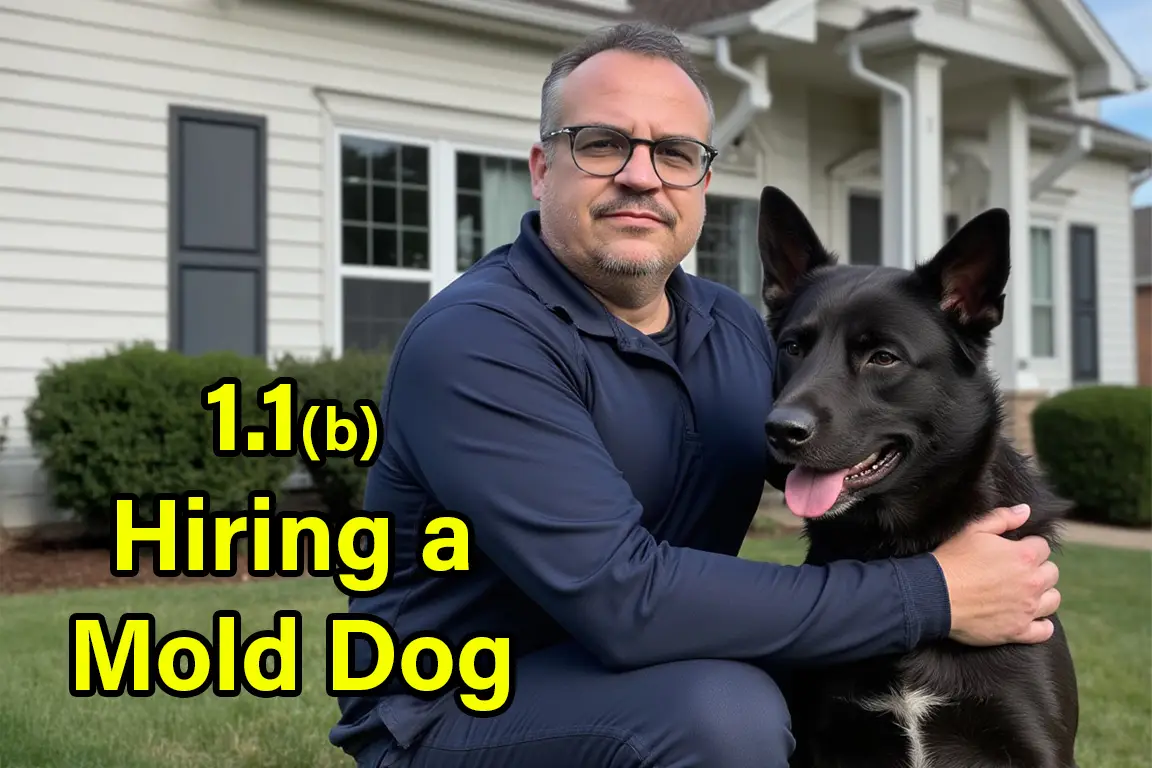Handler Qualifications Matter
The skill of the handler directly affects the accuracy and usefulness of the dog’s alerts. A mold detection handler should have more than just basic K9 handling skills—they should also understand building science, microbial growth, moisture intrusion, and environmental health. This dual expertise helps them interpret alerts more accurately and communicate findings to homeowners in a meaningful way.
In some states, like Texas, licensing is required to legally perform mold-related inspections. Even where it isn’t, reputable handlers often pursue certification from professional bodies like the ACAC or IAQA. These credentials demonstrate a deeper understanding of indoor environmental issues and a commitment to ethical standards.
A qualified handler can bridge the gap between what the dog senses and what needs to happen next. They can identify structural vulnerabilities, recommend the involvement of an Indoor Environmental Professional (IEP), and guide homeowners toward effective remediation strategies.

